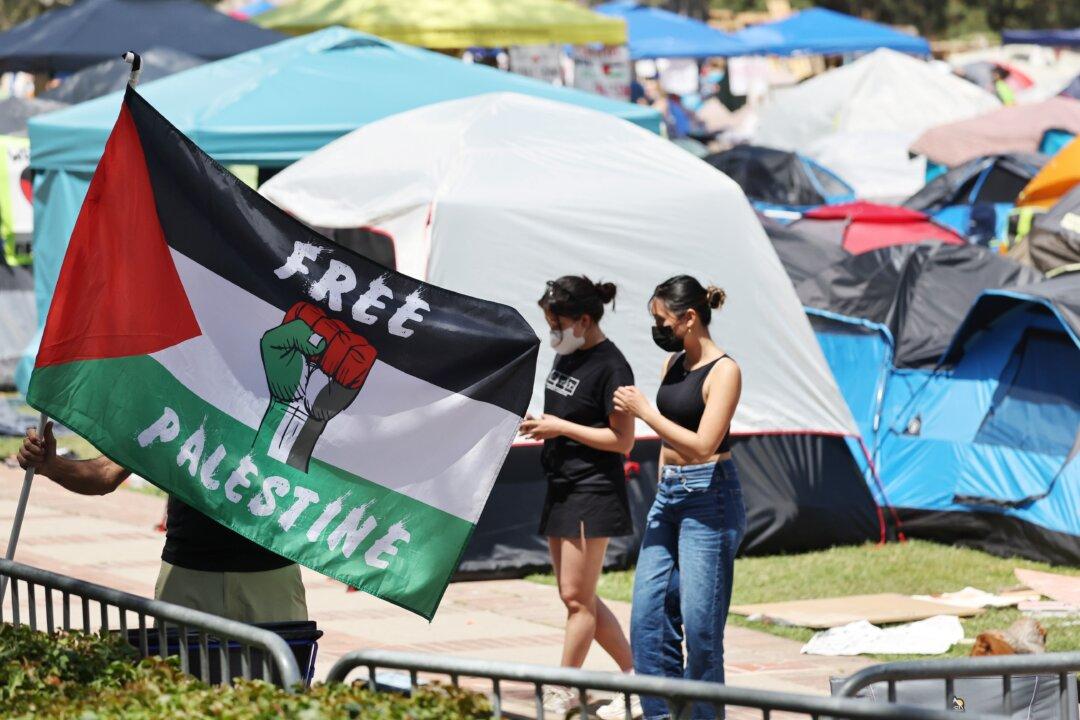A federal judge has given the University of California–Los Angeles (UCLA) one week to draft a plan that would ensure its Jewish students won’t be blocked from attending classes by anti-Israel protesters, as happened this spring.
The July 29 directive was issued a month after three Jewish students sued UCLA for allegedly allowing pro-Palestinian activists to barricade the center of the campus and establish an encampment that illegally obstructed passage to campus facilities.





